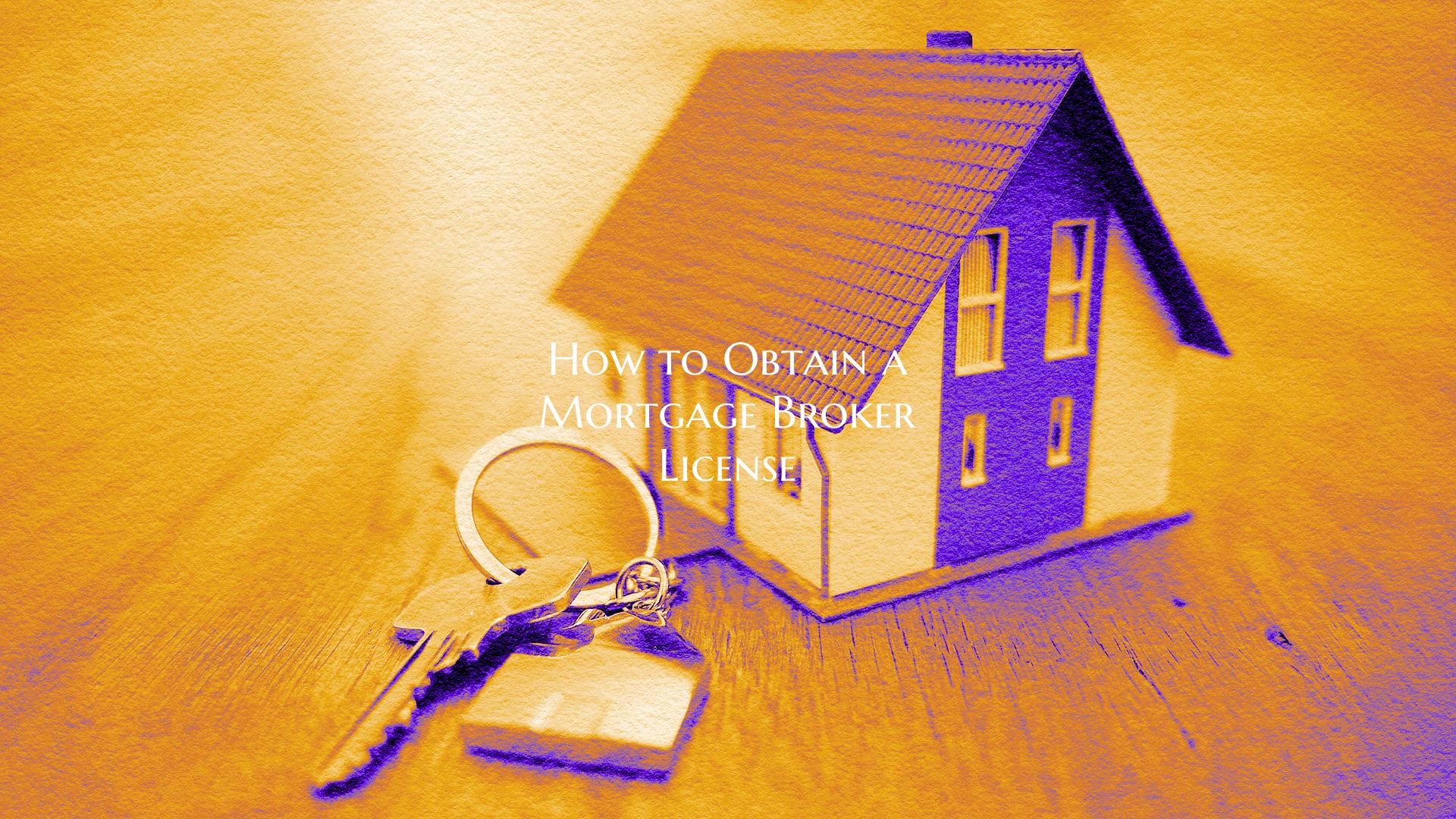How to Obtain a Mortgage Broker License

A mortgage broker license is essential for individuals seeking to operate as a mortgage broker, facilitating transactions between borrowers and lenders. The process of obtaining this license involves several steps and varies based on the requirements of the jurisdiction in which you intend to operate. Below are the common steps involved in obtaining a mortgage broker license:
1. Meet the Eligibility Requirements: The requirements for obtaining a mortgage broker license may vary by state or country. However, common eligibility criteria include being at least 18 years old, having a high school diploma or equivalent, passing a criminal background check, and meeting specific financial responsibility criteria.
2. Complete Pre-License Education: Most jurisdictions require applicants to complete pre-licensing education courses on topics such as mortgage regulations, ethics, and lending practices. The number of hours of required education can vary, so be sure to check the specific requirements in your area.
3. Pass the Licensing Exam: After completing the pre-license education, you will need to pass a licensing exam. The exam typically covers federal and state mortgage laws, ethical practices, and general mortgage industry knowledge. Be sure to study and prepare thoroughly for the exam.
4. Submit an Application: Once you have met the education and examination requirements, you will need to submit a license application to the appropriate regulatory agency. The application will require detailed information about your personal background, employment history, and financial history.
5. Obtain a Surety Bond: Many jurisdictions require mortgage brokers to obtain a surety bond as part of the licensing process. The bond serves as a form of protection for consumers in case the broker engages in fraudulent or unethical behavior.
6. Complete Jurisdiction-Specific Requirements: In addition to the general steps outlined above, you may need to fulfill jurisdiction-specific requirements such as providing proof of professional liability insurance, undergoing additional background checks, or meeting certain experience requirements.
7. Maintain Continuing Education: Once you have obtained your mortgage broker license, you will likely be required to complete continuing education courses to stay up-to-date on industry developments and regulatory changes.
It's important to note that the specific requirements for obtaining a mortgage broker license can vary widely depending on where you plan to operate. Be sure to thoroughly research the licensing requirements in your jurisdiction and consult with the appropriate regulatory agency to ensure that you are meeting all necessary criteria.
